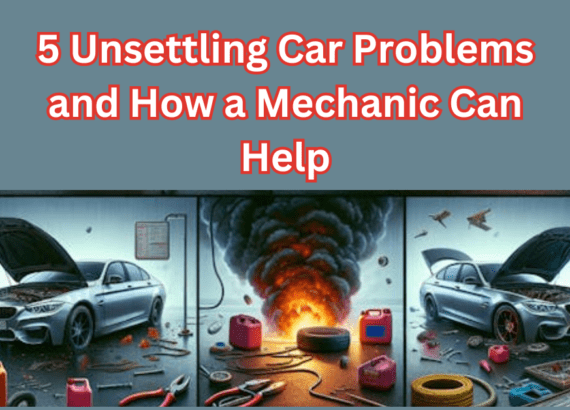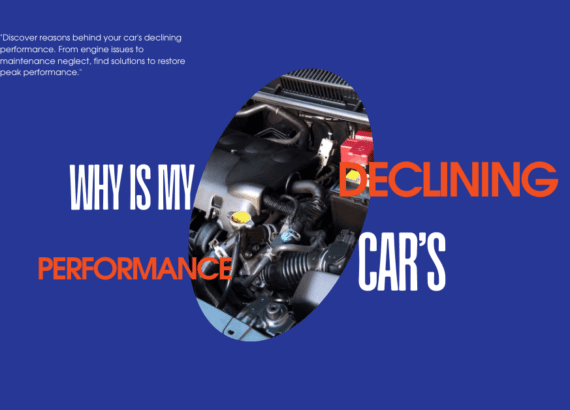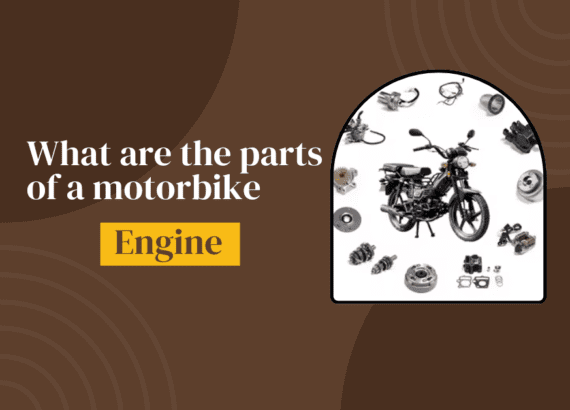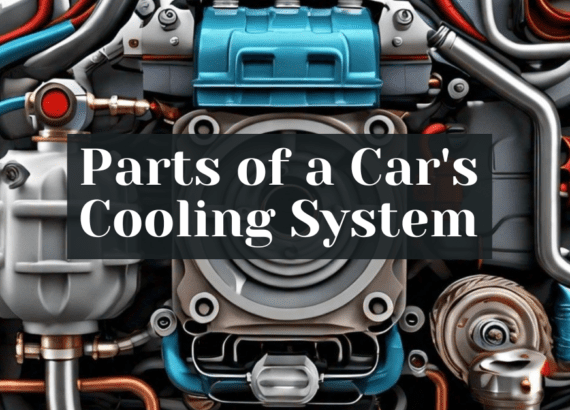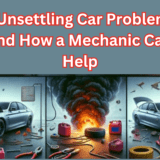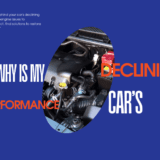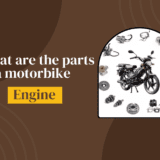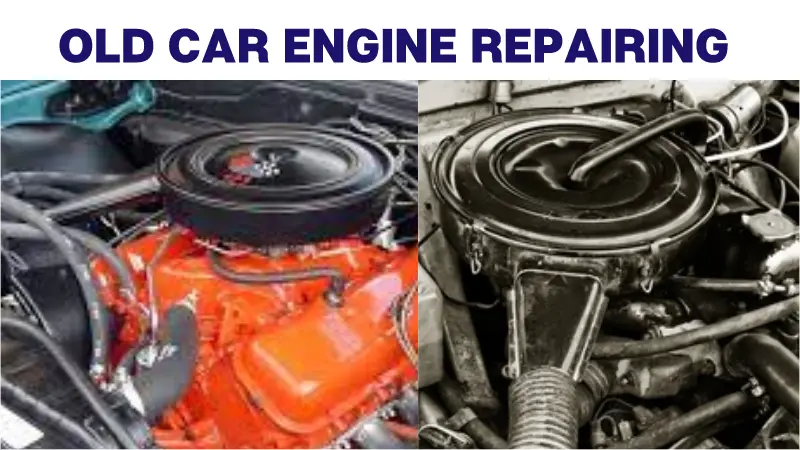The Ultimate Guide to Volkswagen Engines

Volkswagen, a renowned German automotive brand founded in 1937 by the German Labor Front, has an international reputation for its quality and a rich history spanning generations. The company has released dozens of models that have spread across Europe and the world. One such example is the iconic VW Golf, now in its eighth generation, showcasing. The incredible dedication to research and development.
With a variety of engine options, including powerful engines. Volkswagen’s commitment to improved engine components over the years has made its models among. The most popular and appreciated in the automotive industry, ultimately establishing it as one of the strongest players in the market. This article will cover various aspects of VW engine types and features.
Volkswagen Engine History
Volkswagen has a rich history of producing engines that have evolved over the years. The journey began with the iconic air-cooled models like the VW Beetle in the late 1970s and early 1980s, known for their simplicity and durability. As time progressed, Volkswagen transitioned to water-cooled engines, introducing advanced technologies for improved efficiency. In recent years, VW has embraced a significant shift towards sustainability by producing hybrid and fully-electric vehicles, aiming to reduce emissions and contribute to a greener future.
Types Of Volkswagen Engines

When choosing a Volkswagen, drivers can opt for Diesel Engines within the diverse range of engine options. Known for their fuel efficiency and torque, these engines are a popular choice. Gasoline-Powered Engines, with their impressive power outputs, highlight VW’s versatility across various models. Furthermore, Volkswagen’s commitment to eco-friendliness is evident in their Hybrid and Electric Engines. Which deliver impressive efficiency and enable zero-emission driving. Here are some of the notable types of engines that Volkswagen has used in its vehicles:
TSI (Turbocharged Stratified Injection) Engines:
These are Volkswagen’s modern petrol engines with turbocharging and direct fuel injection. They are known for delivering a good balance of power and fuel efficiency.
FSI (Fuel Stratified Injection) Engines:
FSI engines are direct injection petrol engines designed to improve fuel efficiency and performance by precisely injecting fuel directly into the combustion chamber.
TDI (Turbocharged Direct Injection) Engines:
TDI engines are Volkswagen’s turbocharged diesel engines work. They are known for their fuel efficiency and torque, making them popular . For those seeking a balance between performance and fuel economy.
VR6 Engines:
The VR6 engine is a narrow-angle V6 engine configuration developed by Volkswagen. It provides the power of a V6 with a more compact design.
EA888 Engines:
The EA888 is a series of petrol engines that includes both turbocharged and supercharged versions. These engines are part of Volkswagen’s efforts to improve efficiency and reduce emissions.
EA288 Engines:
The EA288 is a series of diesel engines designed to meet stringent emissions standards. They are part of Volkswagen’s commitment to producing cleaner diesel engines.
Electric Motors and Battery Systems:
With the introduction of electric vehicles, Volkswagen has developed various electric motors and battery systems. The ID. The series represents their lineup of electric vehicles, each equipped with an electric motor and advanced battery technology.
W Engines:
In the past, Volkswagen used “W” engines in some of their high-performance models. The W12 engine, for example, was used in vehicles like the Volkswagen Phaeton and Bentley Continental GT.
It’s worth noting that Volkswagen continues to innovate and introduce new engine technologies . As the automotive industry evolves, with a growing emphasis on electric and hybrid powertrains in recent years. Keep in mind that specific engines may vary across different Volkswagen models and model years.
Types of Engines in Volkswagen Models
Volkswagen, one of the leading car manufacturers globally, is renowned for producing reliable cars that dominate the road. The diverse engine selection available across Volkswagen models reflects. Their commitment to providing options that cater to various preferences and performance needs.
1. Diesel-Powered Engines:
VW 1600 Engine: The 1.6-liter displacement VW 1600 engine stands as a direct successor to the original 1.2-liter engine, a cornerstone in the iconic VW Beetle.
VW Type 3 Engine: Recognized as the world’s first engine with electronic fuel injection, the VW Type 3 engine signifies Volkswagen’s early strides in innovative technology.
2. Modern Classics:
Golf and Rabbit: The 1980s marked the entry of modern classics like the Golf and Rabbit into the US market. The VW 1600 engine, with its 1.6-liter displacement, powered these successful models.
3. Newer and More Powerful Engines:
4-Cylinder Options: Volkswagen’s commitment to engine evolution is evident in the newer engines with larger displacement, providing increased power and efficiency.
12-Cylinder Performance Options: For those seeking top-tier performance, Volkswagen offers 12-cylinder engine options catering to enthusiasts in the US market.
4. Diesel Engine Variants:
Least Powerful Diesel Version: The first-generation VW Rabbit, equipped with a 1.5-liter displacement engine, generated 50 horsepower, showcasing the initial diesel offerings from Volkswagen in the US market.
Most Powerful Diesel Engine: The Volkswagen Tuareg boasts a V10 turbo diesel engine, producing an impressive 308 horsepower, setting a new standard for diesel power in the automotive industry.
5. Gasoline-Powered Engines:
Diverse Selection: Volkswagen provides a broad array of gasoline-powered engines, including 4-cylinder and 12-cylinder options, giving consumers a wide range of choices.
Power Range: With power outputs ranging from 50 to 444 horsepower, Volkswagen’s gasoline engines emphasize durability, quality, and a spectrum of power for different driving preferences.
6. Commitment to Excellence:
Research and Development: Volkswagen’s unwavering commitment to research and development in engine technology is evident in its strict quality control and German precision.
Awards and Recognition: The brand’s dedication has been recognized with numerous global awards, including the prestigious WhatCar award for the Golf TSI, named Small Family Car of the Year for three consecutive years (2009-2012). The TSI engine also earned the title of International Engine of the Year for five consecutive years, showcasing Volkswagen’s consistent excellence in engine innovation.
Performance Comparisons Across Models
Discover a diverse range of Volkswagen models tailored to various performance preferences. Whether you crave the sporty nature of the Golf GTI with its exhilarating acceleration and nimble handling, or the commanding power of the Golf R equipped with an inline-4 Turbo engine, Volkswagen caters to diverse driving experiences. Embrace electric mobility with the ID.4 electric SUV, offering instant torque, smooth acceleration, and distinctive performance characteristics that align with modern preferences for eco-friendly driving. Explore the dynamic world of Volkswagen engines and elevate your driving experience.
Maintenance Considerations
For Volkswagen engines, enthusiasts and potential buyers seeking top-notch performance must prioritize meticulous maintenance. Utilizing a mix of OEM and aftermarket parts from reputable brands like JEGS, Cleveite MAHLE, and Power Stop ensures quality components.
Whether opting for air-cooled engines or exploring hybrid and electric powertrains, a comprehensive understanding of various models’ capabilities, including performance evaluation and maintenance requirements, empowers customers to make informed decisions. Customer reviews play a crucial role in assessing the perfect match within the extensive range offered by Golden Star, Retorsion, and K&N for Volkswagen engines.
Strongest Volkswagen Engine
Volkswagen has an incredible history of crafting powerful cars with cutting-edge engines. The Tuareg R, a gasoline-powered 3.0-liter V6 plug-in hybrid, stands out with a whopping 462 hp, making it the fastest in its class with a top speed of 155 mph.
The Tuareg R, equipped with the strongest VW engine, redefines the standards for sedans and hatchbacks. Its remarkable power, combined with optimal size and weight, contributes to its status as the fastest Volkswagen model, reaching a top speed of 155 mph.
For the Golf R Mk8, an aerodynamic hatchback, the inline-4 Turbo gasoline-powered engine generates 333 hp, making it the fastest Golf model with a top speed of 168 mph. Remarkably, it’s a tonne lighter than the Tuareg R, showcasing Volkswagen’s commitment to speed and efficiency in both sedan and SUV designs.
Maintaining the modern VW engines for peak performance can be a challenge, but with JEGS providing an extensive selection of OEM and aftermarket parts from top brands like Cleveite MAHLE, Golden Star, Power Stop, RetroSound, and K&N, ensuring the highest quality for your Volkswagen is made easy.
Volkswagen Engine Diversity and Specifications
Volkswagen engines are renowned for their versatility, offering the widest range of configurations from compact inline triples to popular 4-cylinders. The atmospheric version and turbocharged options like 1.2 TSI, 1.4 TSI, 1.8 TSI, and 2.0 TSI showcase the prowess of FSI direct injection and supercharged turbos, powering various VW cars.
Within the VAG engine portfolio, diverse models feature larger dimensions and come with 5 or 6 cylinders. The configuration includes in-line, V6, and the distinctive VR6. Top modifications across Volkswagen, Audi, and Bentley boast V8 engines, both turbocharged and naturally aspirated, propelling sports cars like Lamborghini, Audi, and Bentley, with some reaching impressive V10, V12, WR12, and the iconic W16 with an 8-liter displacement, as seen in the Bugatti Veyron.
A wide array of Volkswagen gasoline engines is available, ranging from ultra-small two-cylinders to the robust 5-liter V10 and 6-liter V12, delivering remarkable torque up to 1000 Nm. This extensive selection caters to the varied needs across the automotive spectrum.
In the comprehensive catalog of engines for various Volkswagen models such as Beetle, Caddy, Golf, Jetta/Bora/Vento, LT, Passat, Polo, Scirocco, Tiguan, and Touran, the technology-rich gasoline engine series like EA111, EA113, EA211, EA360, EA390, EA395, EA398, EA824, EA827, EA828, EA835, EA837, EA839, and EA855 coexist with the efficient diesel engine series, including EA086, EA153, EA180, EA188, EA189, EA288, EA330, EA381, EA896, EA897, and EA898, showcasing Volkswagen’s commitment to innovation.
Maintenance Tips for Modern Engines
Proper maintenance is the key to ensuring the longevity and optimal performance of modern Volkswagen engines. Adhering to manufacturer guidelines, performing routine maintenance tasks such as oil changes, filter replacements, and spark plug inspections is essential. Use high-quality OEM or reputable aftermarket parts to maintain the engine’s performance and reliability. Regularly checking fluid levels, monitoring the engine’s temperature, and addressing warning signs are crucial steps in keeping Volkswagen engines running smoothly for years to come.
Hybrid and Electric Options
In the introduction of Volkswagen’s eco-friendly direction, the brand underscores its commitment to sustainability by unveiling a diverse range of vehicles, incorporating both hybrid and fully-electric models. The innovative approach blends traditional internal combustion engines with electric motors, optimizing fuel efficiency while achieving remarkable reductions in emissions. Notably, the ID.4 electric SUV serves as a focal point, offering readers profound insight into Volkswagen’s vision for the future, marked by unparalleled zero-emission driving experiences and the distinctive advantages of fully-electric engines.
VW Engines: Evolution Unleashed
The Volkswagen air-cooled engines marked the beginning of an industry that has evolved at an incredible pace. From the slower, original VW engines that powered the freezing and boiling roads with their low-rev feature, the introduction of electronic injection in 1979 signaled a last for carburetors.
Today, the modern VW engines, like the TSI engine, have not only lowered emissions and significantly reduced fuel consumption but have also surpassed old-school engines in power and torque. With a focus on providing outstanding performance features while reducing engine size, Volkswagen aims to exceed expectations when it comes to both performance and fuel economy. The newest development reflects a departure from the fragile components of old engines, embracing modern technology and innovations for a simpler design that people can appreciate.
Conclusion
Volkswagen’s extensive history and commitment to innovation are evident in its diverse engine lineup, spanning from air-cooled to hybrid and electric options. Models like the Tuareg R and Golf R Mk8 showcase the brand’s performance focus, while awards underscore its excellence. With a versatile range of engines, including TSI, FSI, TDI, VR6, EA888. Volkswagen remains a leading player in the automotive industry. The brand’s dedication to sustainability and cutting-edge technology ensures. A dynamic driving experience, coupled with meticulous maintenance practices and a forward-looking approach to hybrid and electric mobility.
FAQs
Which engine is used in Volkswagen?
Volkswagen’s award-winning TSI petrol engines deliver supreme power with meager fuel consumption. Meaning that there’s no need to choose between performance and economy.
What company makes VW engines?
This list of Volkswagen Group engines includes internal combustion engines . The related technologies produced by the German automotive concern, Volkswagen Group.
Is Audi a VW engine?
Engines are typically used between VW and Audi models. The exception of some Audi RS models and V8 or I5 engine versions. Which tend to have specific engines that VW models don’t. Most of the 4 cylinder stuff however, is the same.
What is a VW Type 4 engine?
In fact, Type 4 engine components are much stronger. Than those of Type 1 engines, making the Type 4 . The perfect power plant for high torque and big horsepower applications. The type 4 engine case is cast from #319 aluminum alloy and heat treated to improve the machinability and strength.
What does Type R mean VW?
Volkswagen R is the brand used by the German auto manufacturer Volkswagen to indicate a sport or high performance model. An “R” badge is placed on the grille, front fenders and trunk of R-model vehicles to indicate the vehicle’s trim level. Volkswagen R, R-Line. Type. Marque.
Is Volkswagen CC a V6?
Volkswagen Passat CC 3.6 V6 FSI 4Motion DSG Sequential, 6-speed.
